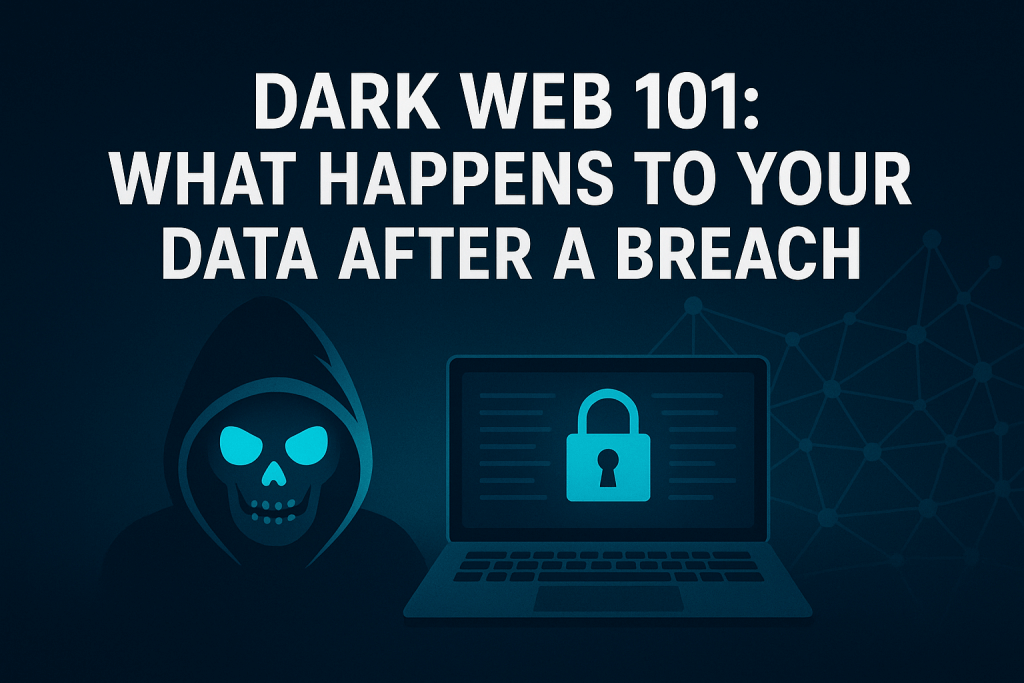You often see in the news about some company having a data breach. And then you might wonder what really happens to my data after it’s stolen? For normal users, after a password reset, hackers lose access to the account, but they still have the data. And that’s where it gets interesting.
Today, we’re going to dive into the dark web. The part of the web where all stolen information becomes a real commodity on the market. In this article, we will tell you what happens to your data after the leak and how they get there.
Let’s get started.

What Is the Dark Web, Really?
Let’s start at the beginning. What is the dark web?
In simple words, this is the part of the Internet that is not indexed by search engines. In it, you will not find a trusted brand or familiar site with clothes. There are only hidden special places. That is, from your browser you can not get to these sites. There are special tools like Tor and others for that.
In fact, there is nothing illegal about it. But this segment of the Internet is often used for illegal activities. Because it’s easier to hide it there. And it’s where stolen data is often sold and bought. Whether it’s personal or corporate.
Think of it as a digital black market where hackers, identity thieves, and even government officials operate under the cloak of anonymity.
Stolen Data Way
And so, let’s take a look at the path of the stolen date from beginning to end.
Step 1: The Breach
It all starts with a security problem of some kind. It could be a weak password, old software, or a phishing attack. Criminals infiltrate your system and steal your data. For example, by hacking into an employee’s computer, hackers can gain access to information about the entire company.
Typically, this data includes names, email addresses, phone numbers, passwords, credit card information, social security numbers, and more.
In many cases, these hacks go undetected for weeks or even months, giving attackers ample time to leak and organize data.
Step 2: Packaging and Selling the Data
What happens next? Usually, after the theft, the information is archived into large files and sorted. By value or something else. Very often, hackers create so-called fullz. These are files where all the information about a particular user is collected. It can contain information about your birthday and health insurance.
These data packages are then listed for sale on dark web marketplaces, usually priced based on their quality:
- Email and password combos: $2–$10 per thousand
- Credit card numbers: $5–$100 per card, depending on limit and validity
- Fullz (ID, SSN, address, etc.): $30–$100+
- Bank logins: Varies based on account balance
- Medical records: $250+ per record (due to their long-term fraud potential)
Some data is auctioned in private forums or shared in hacker communities for free, especially if the breach is old or already public knowledge.
Step 3: Data Monetization
And this is where the interesting part comes in. Someone has bought your date. But why? Most likely to turn it against you. Hackers usually do the following things when they get data:
Identity Theft
If criminals have all the information they need about you, they can do a lot of nasty things. Open bank accounts, take out loans, rent apartments, and file tax returns on you.
This is all called identity theft. Basically, they just start impersonating you and capitalize on it.
Phishing and Targeted Attacks
Your account details that someone has bought can be used to scam you again. For example, by phishing or extorting money.
They can start writing to your friends from your account and ask to borrow money. Or send them phishing links. And they can do this quite successfully if they have enough information about you. Impersonating another person on the Internet, knowing everything about them, is not difficult.
Corporate Espionage or Ransomware
Very often, if the credentials of an employee of a large company are hacked and stolen, those credentials will want to be bought by people who are aggressive towards the company.
They will try to hack into all databases, commit extortion or even internal sabotage to shut down the company. You need to be very careful with this, and teach your employees about security measures.
Final Words
To summarize, data that has been stolen and sold on the dark web can be used in many different and sophisticated ways.
This can be both the above-mentioned and more illegal things like blackmail or threats. The dark web is a very dark and scary place, and it’s better that you get away with something as simple as phishing than stumble upon a real scary threat.
And companies need to be careful too. Their data could be sold to competitors or other hackers who could cause bankruptcy or business closures.
